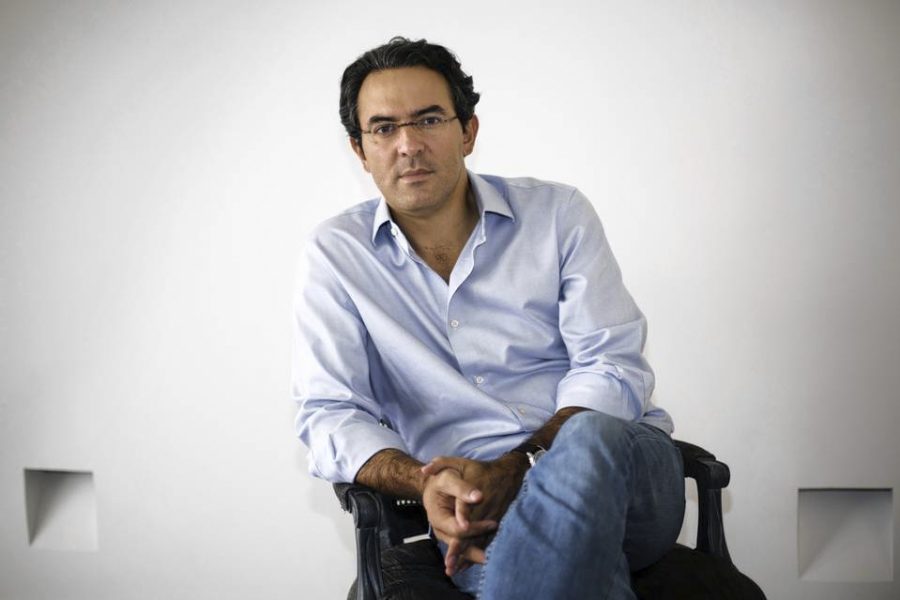Columbian Writer Juan Gabriel Vasquez Talks New Novel
With a recently-published English version of his book “Reputations,” Juan Gabriel Vasquez took to Strand Bookstore to discuss the hardships that inspired his writing about his hometown in Bogota, Colombia.
September 26, 2016
At the center of the Strand’s Rare Book Room stood Juan Gabriel Vasquez, comfortable in a crisp navy button-down and jeans. He moved confidently towards the podium and began to explain the motivation behind his latest book, “Reputations,” which has recently been re-released in English. “‘Reputations,’” he began, “is the study of one man’s doom.”
Born in Bogota, Colombia, Vasquez’s writing focuses on the conflicts that have plagued his home country, both as a way to explore the complexity of the conflicts and as an easy way to provide depth for his characters. “Reputations” follows Javier Mallarino, a famous political cartoonist, who was at the center of documenting political treachery with his drawings in the 1980s. The action takes place in the present-day, 30 years after Mallarino’s heyday, when he becomes reacquainted with someone from the past and is forced to remember what happened all those years before, as well as figure out the implication it could have in the present.
Though this new novel rings similar to his other works in the way that it recounts Colombia’s darker history, Vasquez insisted that “Reputations” is new and different. For one, it is noticeably shorter.
“Short novels,” he said, “novels around 50,000 words or less, do things in a special way.” According to Vasquez, this included going deeper into the protagonist to examine who they really are and why they do what they do.
During a short reading from the novel, it becomes clear that “Reputations” is about many things — among them the unreliability of memory, the dangers of journalism and the fear involved with challenging the system, though the plot takes place within the span of 72 hours. When asked by the audience where the idea for this story came from, Vasquez named a Colombian political cartoonist from the 1930s, Ricardo Rendón.
“I grew up with his books,” Vasquez explained, sharing that the ability to shape a political world through drawings still matters in today’s world. Vasquez also drew from the mystery surrounding Kafka’s “The Trial” and the ambiguity in Henry James’ work, adding that “there is treasure in the not knowing [what will happen next].” Though the novel’s protagonist is a political cartoonist, Vasquez wants to clarify that the work attempted to answer the question of why journalists as a whole do what they do, despite the death threats and fear that inevitably accompany a successful career.
Almost as an echo of this statement, Vasquez read from the novel, “Congratulations. You are nobody in this country unless somebody wants to hurt you.”
At the end of the reading, Vasquez looked into the crowd and smiled, as if flattered to be the object of the wide-open eyes that dotted the room. Judging by both the audience’s reaction and the several awards he has garnered for his previous works, Vasquez is clearly a force preparing to take the literary mainstream by storm.
A version of this article appeared in the Monday, Sept. 26 print edition. Email Jaxx Artz at [email protected].















































































































































